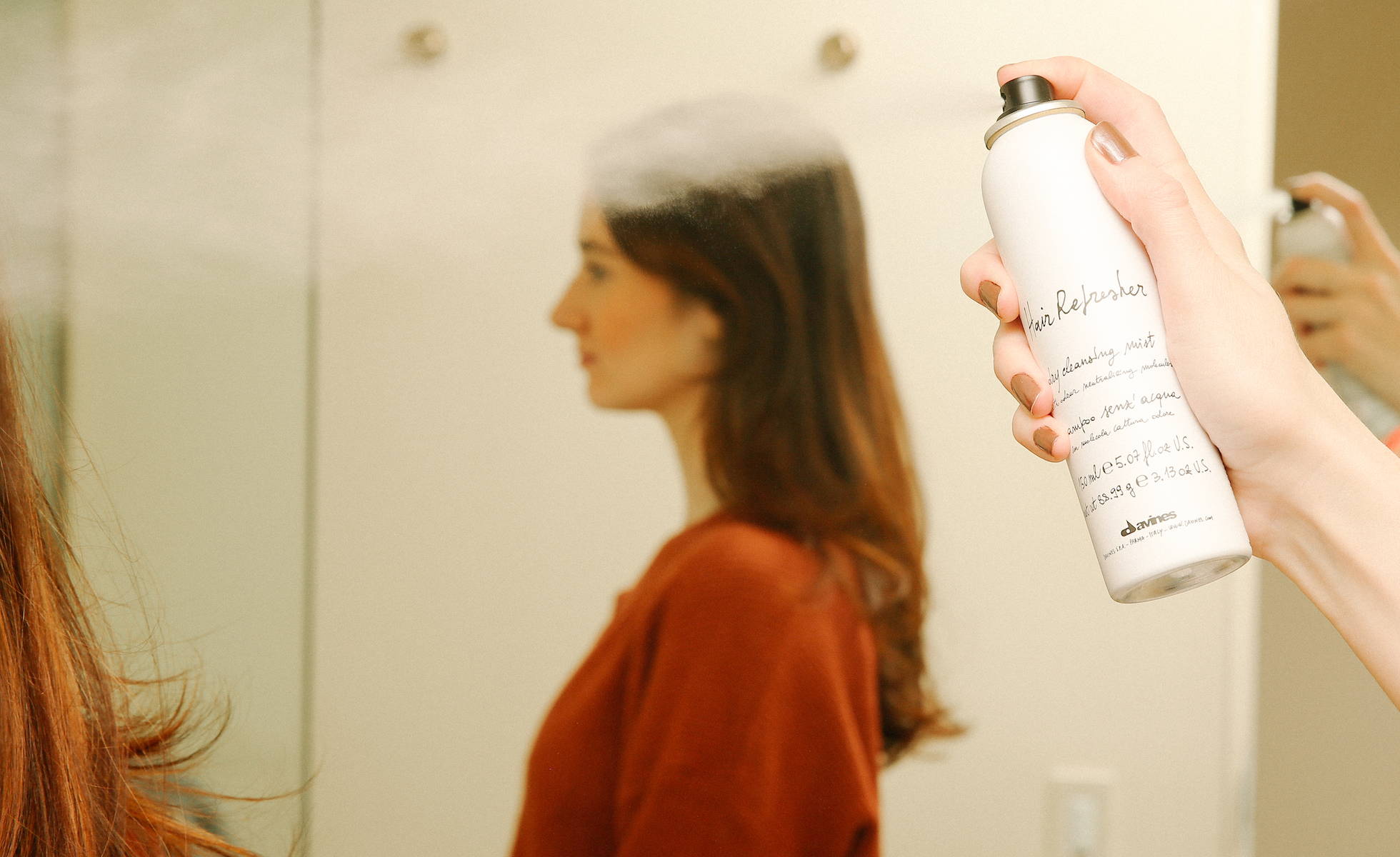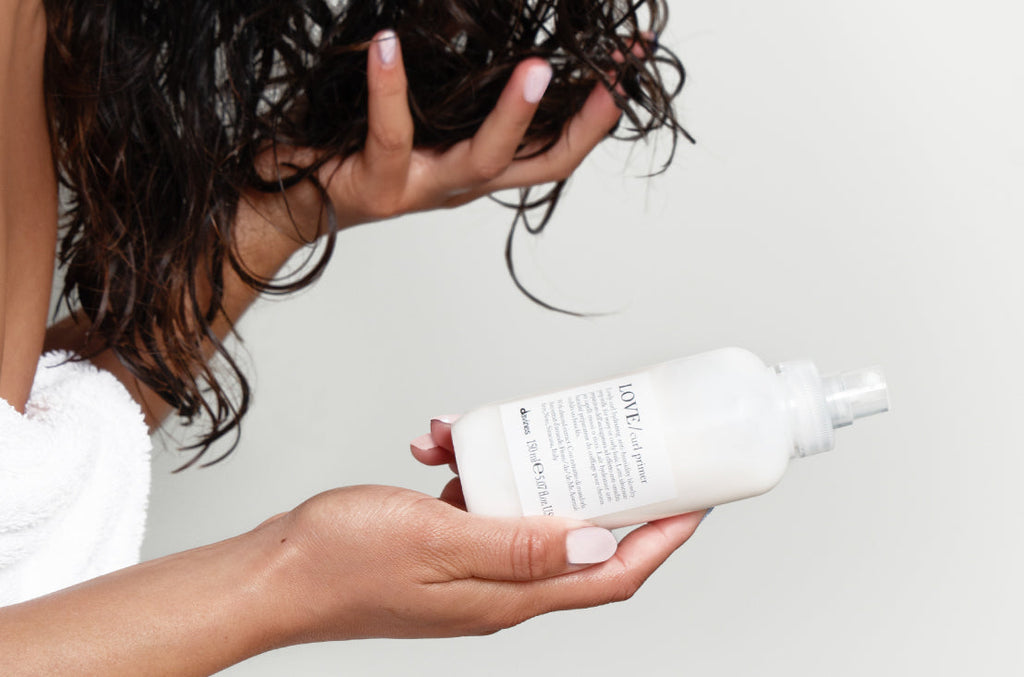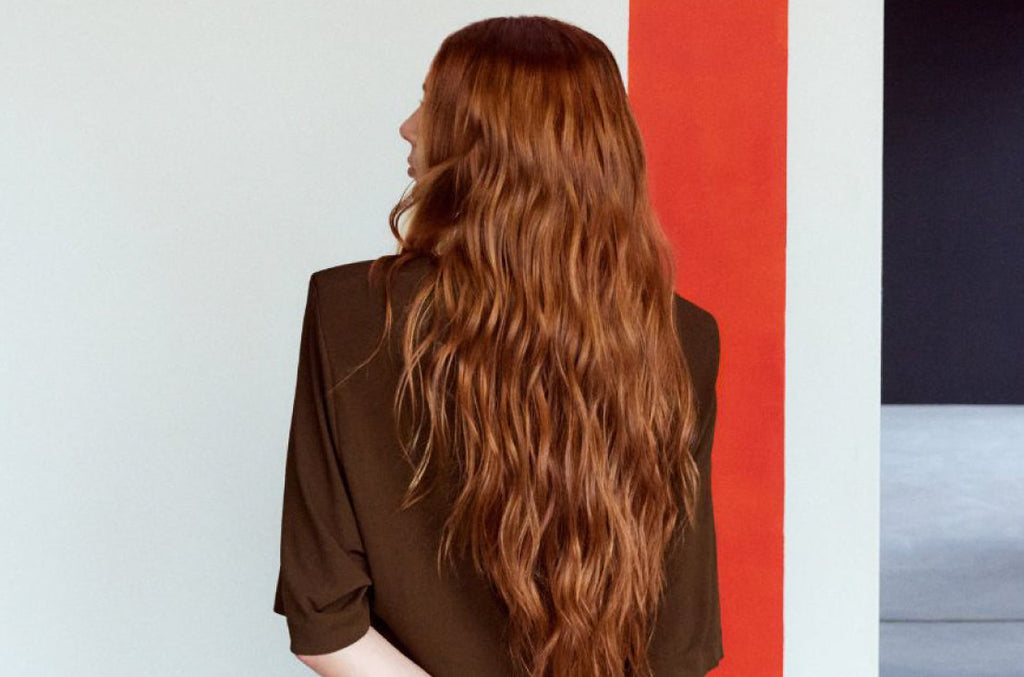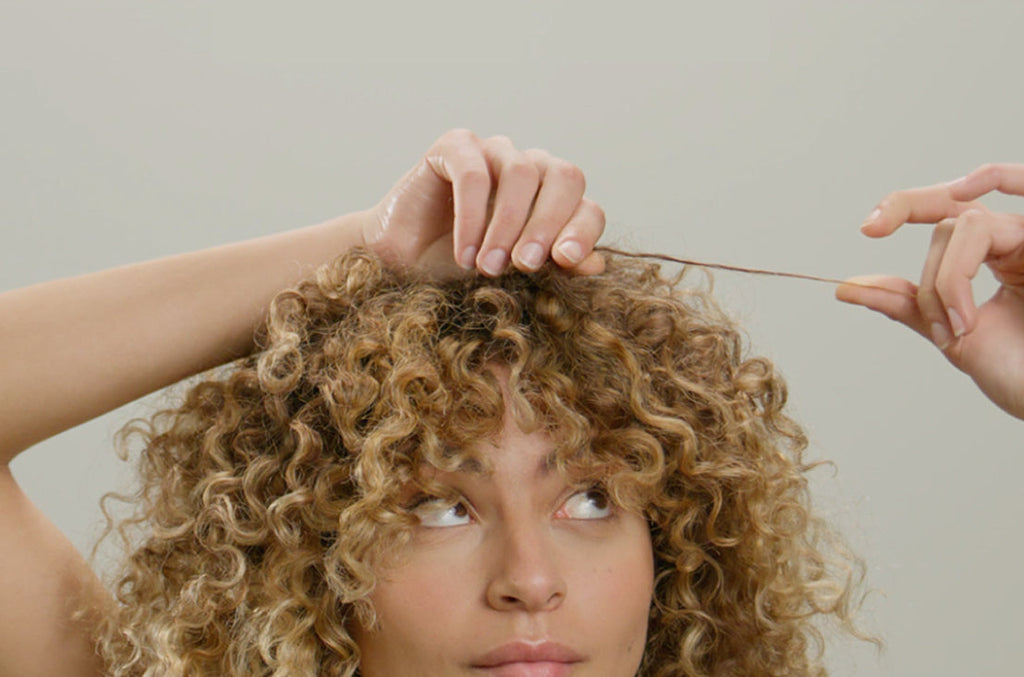Pay with Klarna
Free Carbon Neutral Shipping On Orders $75+, Plus Free Samples!
Pay with Klarna
Free Carbon Neutral Shipping On Orders $75+, Plus Free Samples!
If you’re a recovering dry shampoo addict, consider yourself in good company. There’s nothing quite as amazing and magical as going a few days with unwashed, but yet, refreshed hair, thanks to these miracle workers. But the real question is—is dry shampoo ok to use, or is it actually damaging to your hair follicles and scalp?
The verdict is in. Dry shampoo is great for your hair, as long as you use it properly. Because keep in mind, dry shampoo doesn’t actually clean your hair as deeply as a traditional shampoo would — it simply absorbs excess oil to extend the time in between washes. We’re breaking it down for you below
In a word, no, but don't forget: use, don't overuse. When used in moderation, dry shampoo can continue to be your haircare go-to. But when used too often, it can lead to problems, namely an itchy, dandruff-y scalp, damaged hair and potentially hair loss. That’s because, over time, dry shampoo can actually change the microbiome of your scalp. How does it happen? Good question.
Dry shampoo inherently encourages less frequent washes, but more than that, a person may stop cleansing their hair and scalp properly altogether. That’s where the real problems occur. Dry shampoos don’t actually remove oils, dead skin cells, pollutants and the like. In a nutshell they ‘cover them up’ by absorbing them. So if you don’t eventually wash out the buildup, those icky extras remain on the scalp. (Yuck.)
It’s not that dry shampoo is bad, it’s that dry shampoo can't replace actual shampoo forever. Just be extra diligent when you do wash your hair to avoid all of the above.

To put it simply, dry shampoo works, which is precisely the reason for its long reign in popularity. Not only does it contain absorbent ingredients that soak up excess oil and revive greasy strands, it also adds volume, providing a quicker hair fix than its traditional wash-and-style counterpart.
Invest in one that leaves the hair light and residue-free like Davines’ newest formula, This is an Invisible Dry Shampoo, and you’ll be singing its praises before your next regular shampoo. Promise.
The best alternative to dry shampoo isn’t some insider secret — it may not sound like much, but healthy hair starts with healthy hair habits, and there are countless products to help you achieve it. Just make sure you’re using what’s appropriate for your hair type. Need help figuring out what that is? Start here.
There are other alternatives, too. If you’ve never heard of hair training, here’s the gist. It involves lengthening the amount of time in between washes, and bringing your scalp back into balance. The end goal is to help “train” your scalp to produce less oil, minimizing your need for dry shampoo or frequent washing.
Using a sea salt spray can also freshen second and third-day hair, similar to how dry shampoo does. Hair oils, dry conditioners and even texture sprays are other ways to achieve more of the same.
Moral of the dry shampoo story — it’s perfectly fine to use as long as you use it sparingly, and properly. Dry shampoo is not intended to take the place of real shampoo forever, but it can prolong the amount of time between washes as long as it’s washed out regularly. A quality dry shampoo like one of these effective elixirs from Davines is the perfect addition to your haircare routine.
by Morgan Hanson, featured contributor
Subscribe
Sign up to hear about product recommendations, styling how-to's, tips & tricks, and more!
Plus, Free Shipping on your first order!
Join our newsletter to enjoy free shipping on your first order.
By submitting this form, you agree to receive the latest news, updates, promotions, and other marketing information from Davines North America, Inc. by email.



Leave a comment
Comments will be approved before showing up.